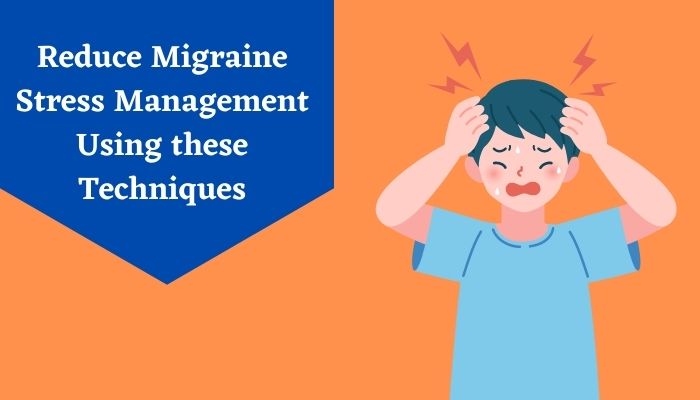A migraine is a form of pain that some people experience due to several factors affecting the Central nervous system. The pain can be mild or severe based on the cause of the migraine. It can be caused due to stress, weather conditions, and several other factors that affect the nerve signals, blood vessels, and chemicals in the brain.
The exact cause of migraine is unknown but researchers have observed a significantly high amount of pain in those who suffer from stress that causes atypical brain activities. Here are a few symptoms to recognize migraine before we delve into migraine stress management. These symptoms come in stages as the effect of migraine stress increases:
- Muscle tension and pain
- Fatigue and light-headedness
- Stiffness in the neck
- Chest pain
- Increasing heart rate
- Sadness bordering on depression
- Stomach sensitivity
- Nausea and vomiting
- A tingling sensation in the arms, legs, and face
- Temporary loss of vision
- Seeing spots, shapes, and flashing lights
- Difficulty in talking
- Sensitivity to sound, light, and smells
- Throbbing pain around the temple, sides, front and back of your head
How to reduce migraine stress headache?
Migraine stress management is a highly sought-after field of research. People who suffer from migraines often experience extreme pain and discomfort, which makes them irritable. It not only affects their mood but their productivity as well. Hence, researchers have logged in a considerable number of hours trying to find ways on how to reduce migraine stress headaches.
Since the actual cause of migraines is still unknown, migraine stress management involves the basic forms of treatment to reduce headaches and discomfort. Let’s take a look at how to reduce migraine stress headaches effectively.
For mild pain:
- The first and foremost method for migraine stress management is to see a doctor. Your headaches may not actually relate to migraine so consult an expert medical practitioner to understand your condition.
- Often, if the migraine pain is mild and only lasts for 4 to 6 hours, you can take over-the-counter medications for pain relief. Acetaminophen, Ibuprofen are all good choices.
- If the pain causes slight discomfort, you can opt for OTCs that contain a combination of aspirin, acetaminophen, and caffeine. Excedrin is a popular choice.
- For more intense headaches that last more than 6 to 8 hours, you can take Sumatriptan, Rizatriptan, Almotriptan, Ergots like Migergot and Cafergot, and even codeine.
Preventive migraine stress management techniques are much more exclusive and are not recommended to everyone since you may need to take these medications daily or in anticipation of a stressful event.
The preventive migraine stress management medications are as follows:
- Blockers of Calcium channels such as Verapamil
- CGRP receptor antagonists like Erenumab-aooe
- Beta-blockers like Propranolol
- Antidepressant medications like Venlafaxine and Amitriptyline
Natural methods of how to reduce migraine stress headaches
While these medications are an excellent way to relieve the pain and discomfort, there are also several migraine stress management techniques that you can follow to reduce the occurrence altogether. Here are a few things you can try:- Get sufficient sleep every night to allow your neuroreceptors to recoup from the stress of the day.
- Exercise daily to increase the production of endorphins that reduce the sensitivity to pain and make you feel happy and satisfied.
- Meditate whenever you feel a little stressed. You can even do a little yoga.
- Sleep in a dark room to allow some time for your brain to recoup without any hindrance that may affect your sensitivity.
- Get a massage to relieve the tension knots and stress from your body and relieve anxiety, thus preventing the onset of migraine.
Migraine stress management is a serious concern. The pain can become chronic causing a long-term discomfort that affects the central nervous system including the spine over time. Don’t opt for medication on a daily basis. They will do less towards migraine stress management and affect your health much more severely.
The best method for migraine stress management is to take preventive measures for stress and keep up your happy hormones with exercise, meditation, and a good night’s sleep.





